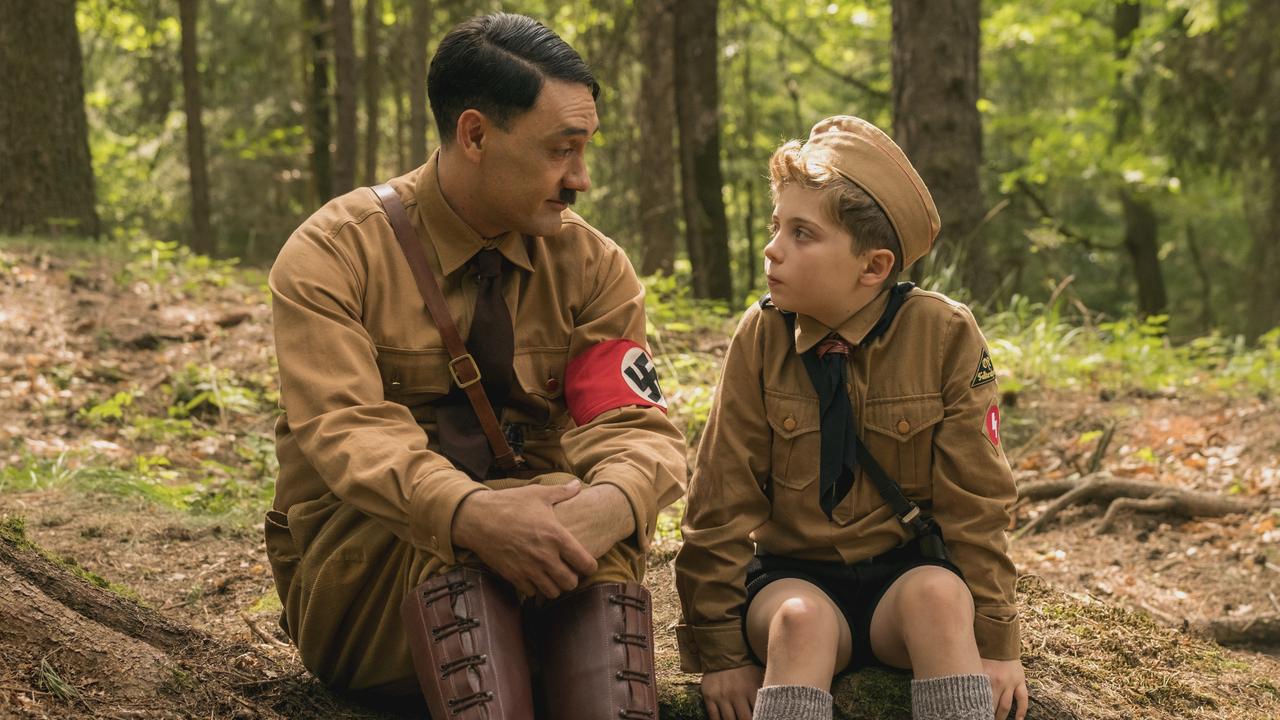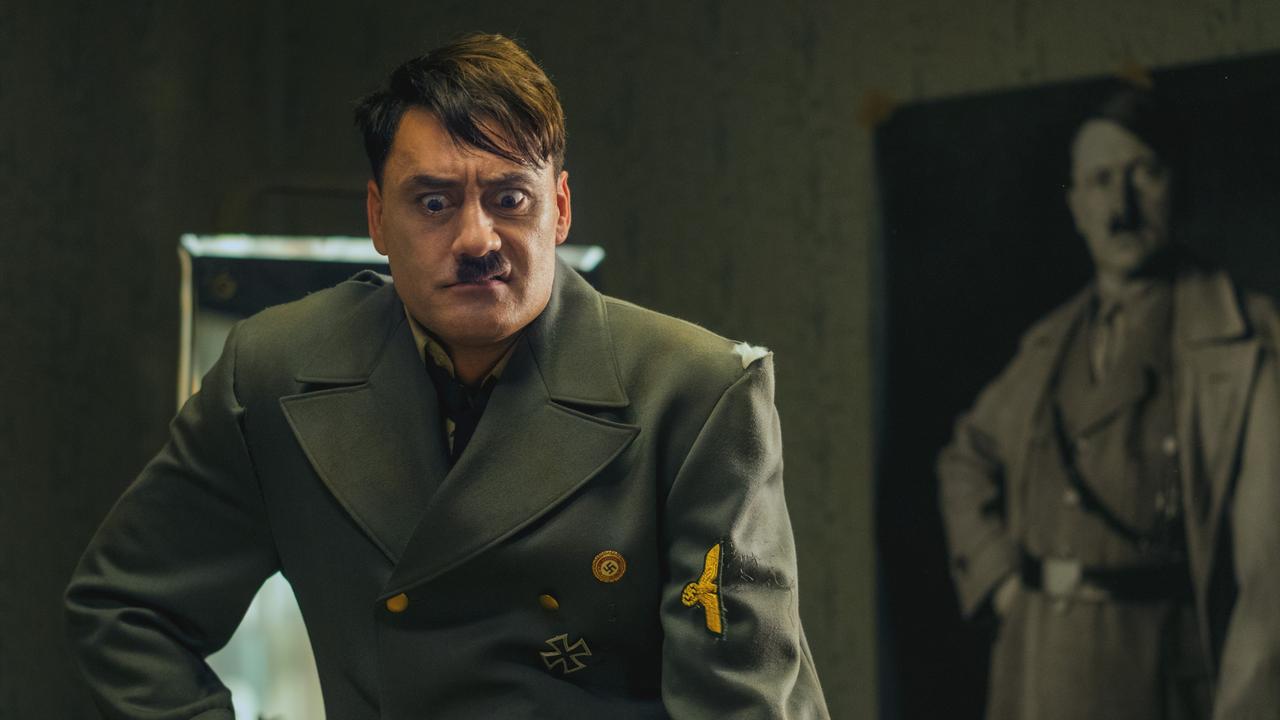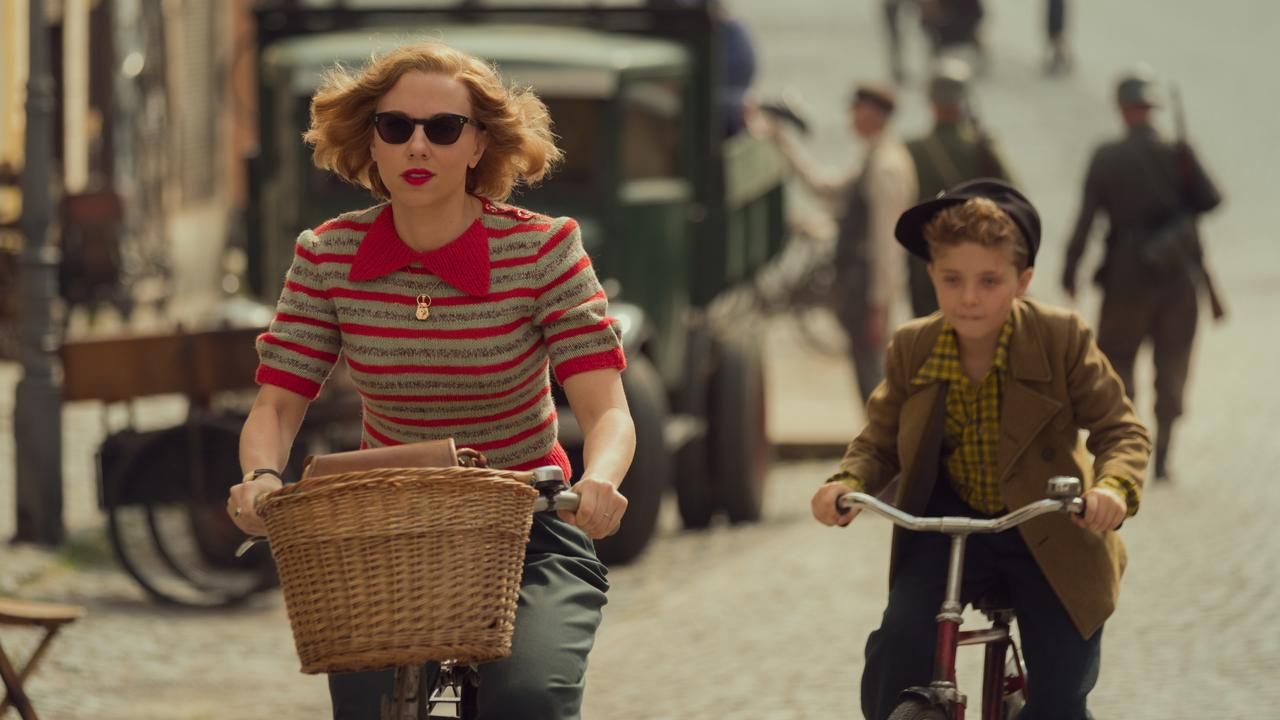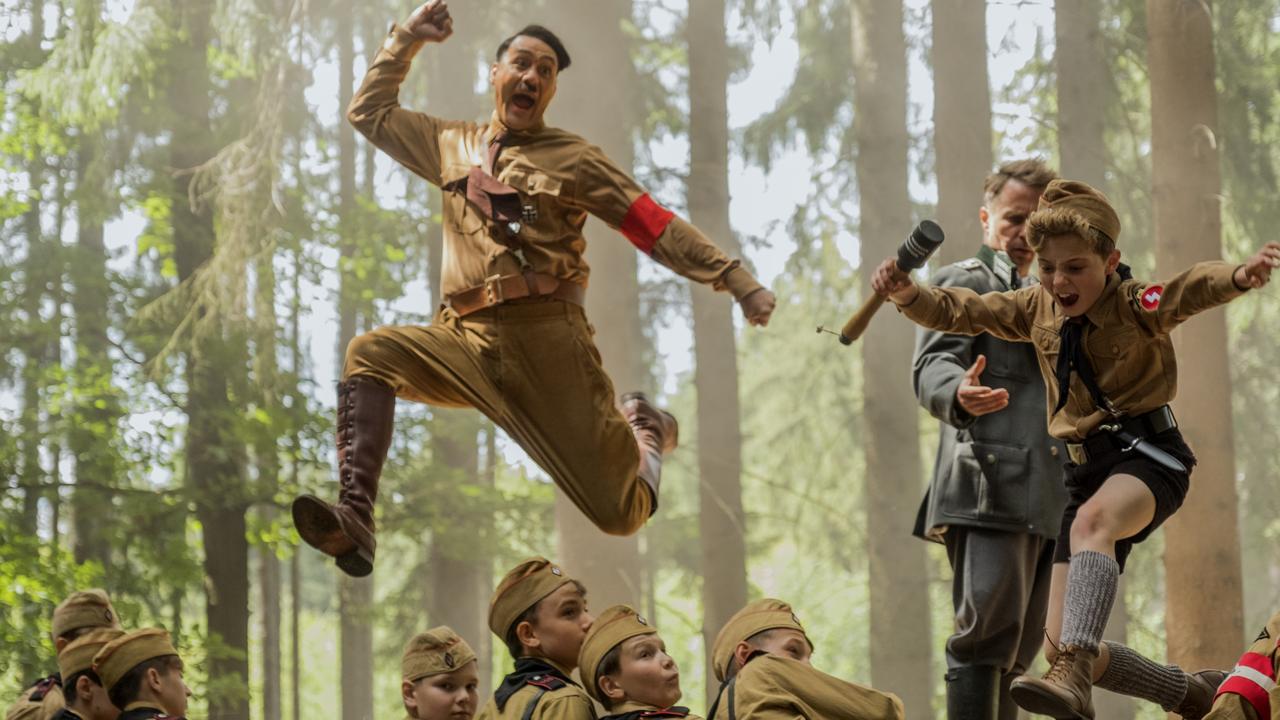Jojo Rabbit review: Hitler comedy is a tale of two movies
This charming comedy won a prestigious audience award at one of the world’s biggest film festivals, and it’s finally opening in Australia.
Jojo Betzler is a blond-haired boy living in Nazi Germany in the closing days of World War II. He’s an avid Adolf Hitler fan, wears his Hitler Youth uniform with pride and vows to hunt down the Jews.
To help him cope with his social isolation from most of his peers, he has an imaginary friend to give him pep talks. That friend is Hitler.
That doesn’t seem like a natural premise for a comedy, but that’s Jojo Rabbit, directed and written by Taika Waititi, adapted from Christine Leunen’s book Caging Skies.
Jojo (Roman Griffin Davis) is cherubic and sweet, and it’s that very innocence that anchors the satire in Jojo Rabbit – how could this 10-year-old, with no real understanding of what he’s espousing (when someone tells him Jews sleep hanging upside down like bats, he believes it) be filled with the hateful ideology of the Nazis?
He just wants to be part of something, to belong.

Jojo’s journey to actualisation and truth is the warm-and-fuzzy part of Jojo Rabbit, which has been marketed as an anti-hate satire.
Waititi, a half-Maori, half-Jewish New Zealand filmmaker and actor, plays the role of Jojo’s imaginary Hitler, skewering a figure that would’ve abhorred people like him.
Waititi broke through directing the likes of the superb films Boy, What We Do in the Shadows and Hunt for the Wilderpeople, before being drafted by Disney to helm a Marvel movie, Thor: Ragnarok.
He always appears in his own work and has an undeniably charismatic screen presence, even as the dictator considered the evil incarnate of the 20th century.

As Jojo’s imaginary Hitler, the character is sometimes buffoonish, sometimes warm and sometimes vile, but we are to take that it’s a manifestation of Jojo’s subconsciousness more than a version of Hitler himself. In that sense, it’s a performance that mostly works, especially as the character becomes less of a presence as the movie goes on and Jojo tears away from the Nazis.
Jojo lives in a smallish town with his mother Rosie (Scarlett Johansson), a hopeful woman who flits about mysteriously, hopes for a German loss and loves to dance. She’s also hiding another secret, a Jewish girl named Elsa (Thomasin McKenzie) in their attic.
When Jojo, home recuperating from injuries sustained at his Hitler Youth camp, chances upon Elsa, it’s the start of his emotional journey.
While Jojo Rabbit is a charming and entertaining film good for many laughs, its main problem is that it’s two movies.

There’s the first two-thirds of the movie in which the jokes come thick and fast with some pretty hilarious antics, especially at the Moonrise Kingdom-looking youth camp, and some broad comedic performances from the likes of Sam Rockwell, Rebel Wilson, Alfie Allen and Stephen Merchant.
But then about 35 to 40 minutes out from the end, Jojo Rabbit takes an abrupt turn into drama. That tonal shift doesn’t work as well, even though McKenzie’s character serves as a thread between the two parts.
After the switch, it loses a lot of its momentum and even a late-in-the-game action set-piece doesn’t quite bring it back on track.

It’s in this third act that it becomes clear that even though Jojo Rabbit has good intentions in its anti-hate raison d’etre, the follow-through never really eventualises, and therefore the film doesn’t fully satisfy.
It’s a very surface-level message, or maybe something has been lost in translation between Waititi’s idiosyncratic mind and what’s on screen.
But having said all that, Jojo Rabbit is still very enjoyable and a beautifully shot movie, with Waititi’s gift for stunning visuals and Ra Vincent’s production design leaping off the screen.
And it won the Audience Award at the Toronto International Film Festival in September, so you know it’s a crowd-pleaser.
Rating: 3.5/5
Jojo Rabbit is in cinemas from Boxing Day
Share your movies and TV obsessions | @wenleima




